Original French version of this article available here.
Disgruntled viewers took to Twitter to criticize the horrendous subtitles produced for Y, The Last Man. When a show’s subtitles are that pathetic, you notice it immediately and simply stop watching, or you turn on the English subtitles or you watch the show dubbed in French.
But the situation gets even worse when the subtitles are just plain bad, which is very often the case with video streaming platforms, because they almost manage to fool viewers. It seems like the English was more or less correctly interpreted, the French is basically correct, the sentences usually make sense, you can generally follow the story, but... everything else is missing.
As an example, let’s take a look at The Witcher, Netflix’s hit series that costs $10 million an episode.
Literal translation
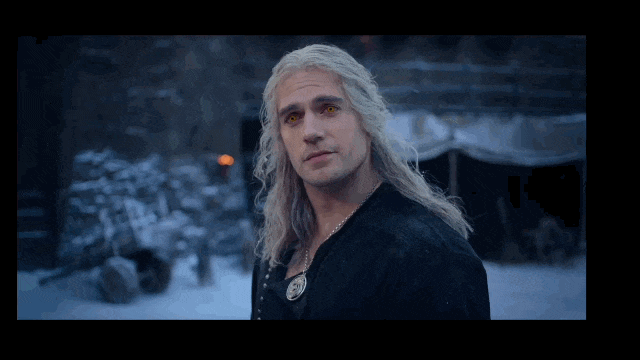
- Hunger makes for good sauce. - Plus on a faim, meilleur c'est.
- It also makes for shitty lurches. - Contrairement à tes fentes.
(- The hungrier we get, the better it is.)
(- Unlike your lunges.)
In the first line, "It is" doesn’t refer to anything, so it’s hard to understand what it means. The second line plays off the first so it’s just as unclear.
As for "lunges", that’s a literal translation of "lurches", but it’s taken from the highly specialised vocabulary of fencing, which is the cherry on this cake of confusion, especially given the speed at which the subtitles go flying by. We can only be left to wonder, "Just what are they talking about?"
The lines could be properly translated like this:
- La faim donne de l'appétit. (Hunger drives your appetite.)
- Et des attaques lamentables. (And your pathetic attacks.)
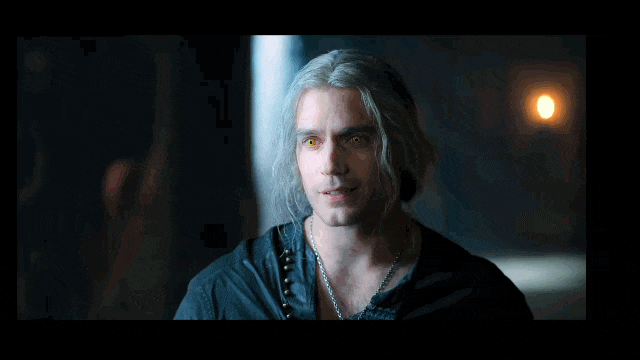
- Until our life mission is complete.
- Which will be never.
"Notre mission de vie", "The mission of our life", is the literal translation of "Our life mission" and... it doesn’t mean anything in French.
In the language of Molière, we’d say:
- Notre vie, c’est cette mission. - Our life is this mission.
- Elle ne finira jamais. - It will never end.
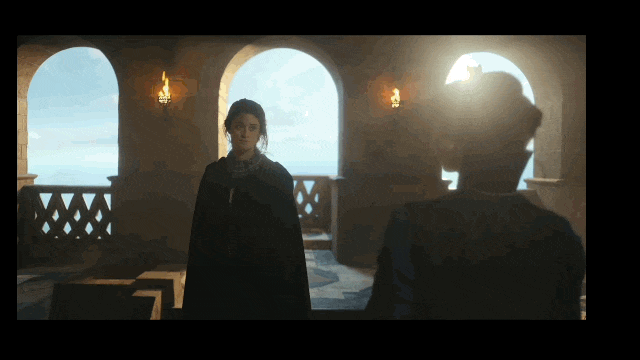
Your actions turned the tide at Sodden Hills.
Tes actions ont renversé la vapeur au Mont Sodden.
(Your actions overturned the steam at Mount Sodden.)
Apart from the fact that a sorcerer would never say, "Me first!" ("Moi d'abord") like a 6-year-old child, using the term "steam" is awkward in this medieval setting. Constant use of literal translation further bogs everything down.
Subtitling is about understanding the meaning and condensing it in proper French:
Tu as renversé le cours de la bataille à Sodden.
(You changed the course of the battle at Sodden.)
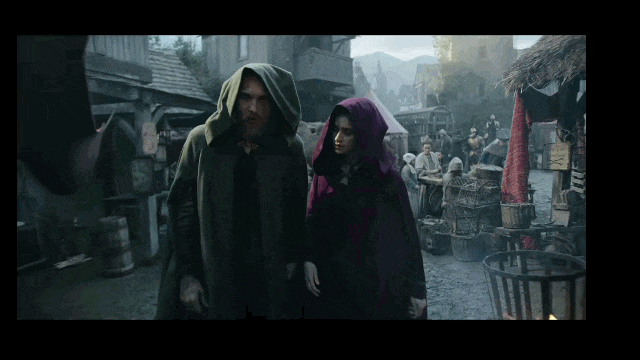
- Have you looked into the mirror lately?
- Prison didn't exactly do you any favors.
Another example of how translating words and not meaning yields nonsense: a prison can’t "render you service".
They say you can learn English by watching original language programmes with subtitles. That may be true. But if you watch this programme with these subtitles, all you'll learn is bad French.
A more natural translation would be:
Tu t’es regardé ? (Have you seen yourself?)
La prison ne t’a pas fait grand bien. (Prison didn’t do you any good.)
Language and register
The eternal scourge of bad subtitling is not respecting the register of the original language, which is made worse by inexplicable changes of register throughout the programme (think Roma). When a character’s personality and distinctive identity get lost in translation, that character has no presence and is no longer believable, which makes it impossible for the viewer to be drawn into his or her world.
In English, when Ciri expresses herself, she uses a fairly formal register but it’s never stiff or awkward. She is frank and spontaneous, but never disrespectful. Here, the subtitles ruin the original scriptwriting so badly you wonder if it wasn’t done on purpose. For example, we have...
Ciri, the truck driver...
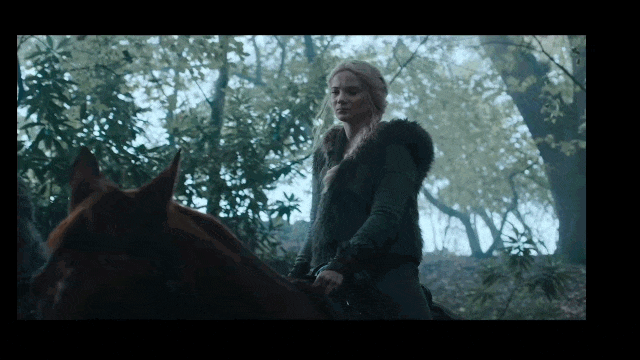
As long as I'm breathing, you've done your part.
Tant que je respire, tu as fait ton boulot.
(As long as I’m breathing, you did your gig.)
"Gig" is not only an anachronism, it’s much too casual for the character. Nothing in the original dialogue justifies using this word.
Why not simply write:
As long as I’m breathing, you did your job.
Ciri, 18th century author:
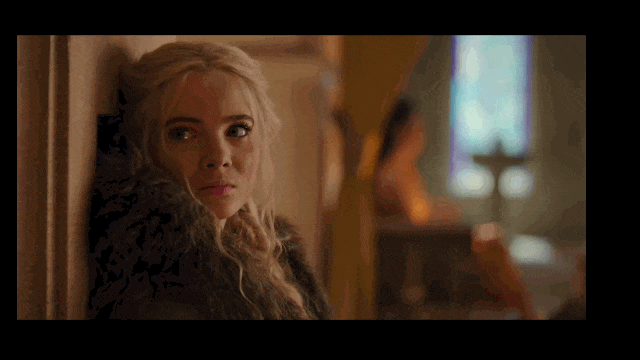
Well, Geralt says you're the most powerful mage he's ever known.
Geralt dit ne pas connaître plus puissante magicienne.
(Geralt says he knoweth not of more potent magician.)
Hard to get more pompous than that! Once again, the translation doesn’t do any justice to the straightforward, original dialogue.
If we wanted to be faithful to the scriptwriter’s work, we could write:
Geralt pense qu'aucun mage n'est aussi puissant que vous.
(Geralt thinks no other mage is a powerful as you.)
Ciri, rad teenager
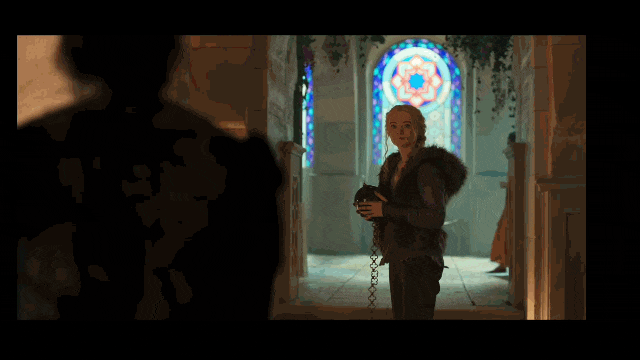
No, it's all right.
Non, c’est bon.
(Nah, I’m good.)
Ciri’s never blasé or overly informal.
Since the "Non" is unnecessary, a simple "Ça ira" ("I’ll be fine"), would work perfectly here.
Ciri, the affected aristocrat:
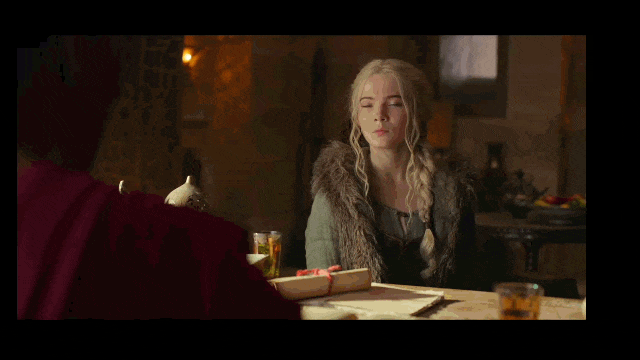
What's that?
Qu’est-ce ?
(What pray tell is that?)
"What pray tell is that?" sounds artificial and completely misses the mark. Ciri is a princess, but she’s not a haughty snob. She’s spontaneous and unaffected, and that’s what makes her endearing to the viewer.
While "C'est quoi ?" does mean "What’s that?", the register is too informal. However, "Qu'est-ce que c'est ?", which also means "What’s that?", wouldn’t be out of character for her.
While we’re at it, let’s also point out the hilarious use of "ressenti", ("feeling"), that the Robert dictionary says first appeared in... 1985! Yet another anachronism that’s never present in the original programme, but that we very often find in the translation:
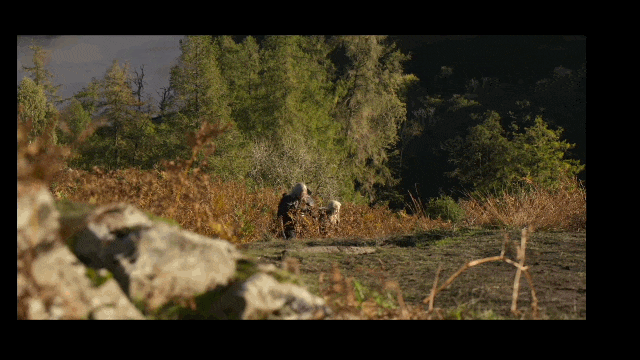
I had that feeling again.
J'ai encore eu ce ressenti.
(I just had this deep-seated feeling.)
Did you know that Ciri majored in psychology?
Reading speed
Another serious problem is that the reading speed used on the platforms is just too fast. The standard for French is 14 or 15 characters per second, but the platforms allow up to 17. This wears out the viewer’s eyes after about 10 minutes. When that happens, good luck trying to understand what’s being said, especially in a series as complex as this one.
At 17 characters per second, each subtitle should be perfectly clear, logical, precise and coherent, which is far from the case:
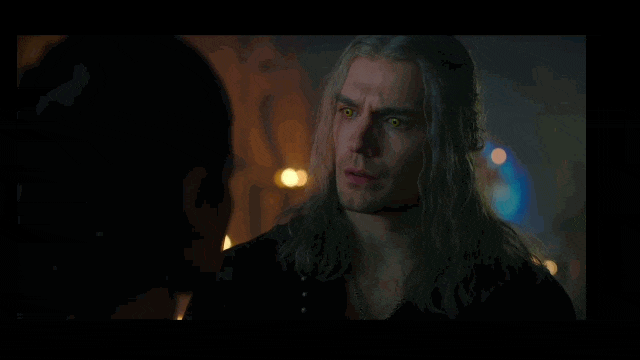
This fire fucker was after him.
A mage. I don't know who he was.
Ce salaud d’incendiaire en avait
après lui. Un mage, j’ignore qui.
(This bastard of an arsonist had something)
(against him. A magician, I don’t know who.)
By attempting to translate all the English words and keep them in the exact same order, the French text becomes an incomprehensible word salad.
If we take a moment to think about this, we realise that "fucker", which we heard earlier, doesn’t need to be translated again here. That would give us enough time and room for a clear and understandable subtitle:
L'incendiaire le poursuivait.
C'est un mage, mais je ne le connais pas.
(The arsonist was after him.)
(It’s a sorcerer, but I don’t know him.)
We’ll stop there, but we could go on and on because these problems appear throughout the entire series, and in many others as well (check out Apache's French subtitles for even worse quality). To speak of a botched work sounds like an euphemism as these subtitles don’t even accomplish the basic task for any translation, which is not to translate words, but to communicate meaning.
The so-called quality control process of these platforms is actually their downfall. If you check the words one by one, sure, there’s no problem. But stringing them together results in something that doesn’t make sense and that doesn’t do justice to the original script.
And so we finally come to the existential question.
Why?
Why invest so much time, money and talent to create remarkable programmes only to destroy the experience for foreign viewers by cutting corners to save a few pennies on the translation? Why seek out the best actors, the best scriptwriters, directors, cinematographers, editors and technicians... only to hand over their brilliant work to incompetent translators so they can butcher it to bits? Why not choose translators who are experienced and competent?
Because in the final analysis, using bad translations ultimately makes The Witcher look like a low-budget project. Produced with one tenth of the original budget, the story would be there, but in a simplified version. The dialogues would fall flat and focus just on the facts. The costumes would be ridiculous, the sets would be cardboard and the effects would be… not at all special.
Is that really the version of The Witcher we want to watch?
It’s not? Then why, if we want to watch it with French subtitles, is that the version we have to suffer through?
Blog post modified on 03/28th.
